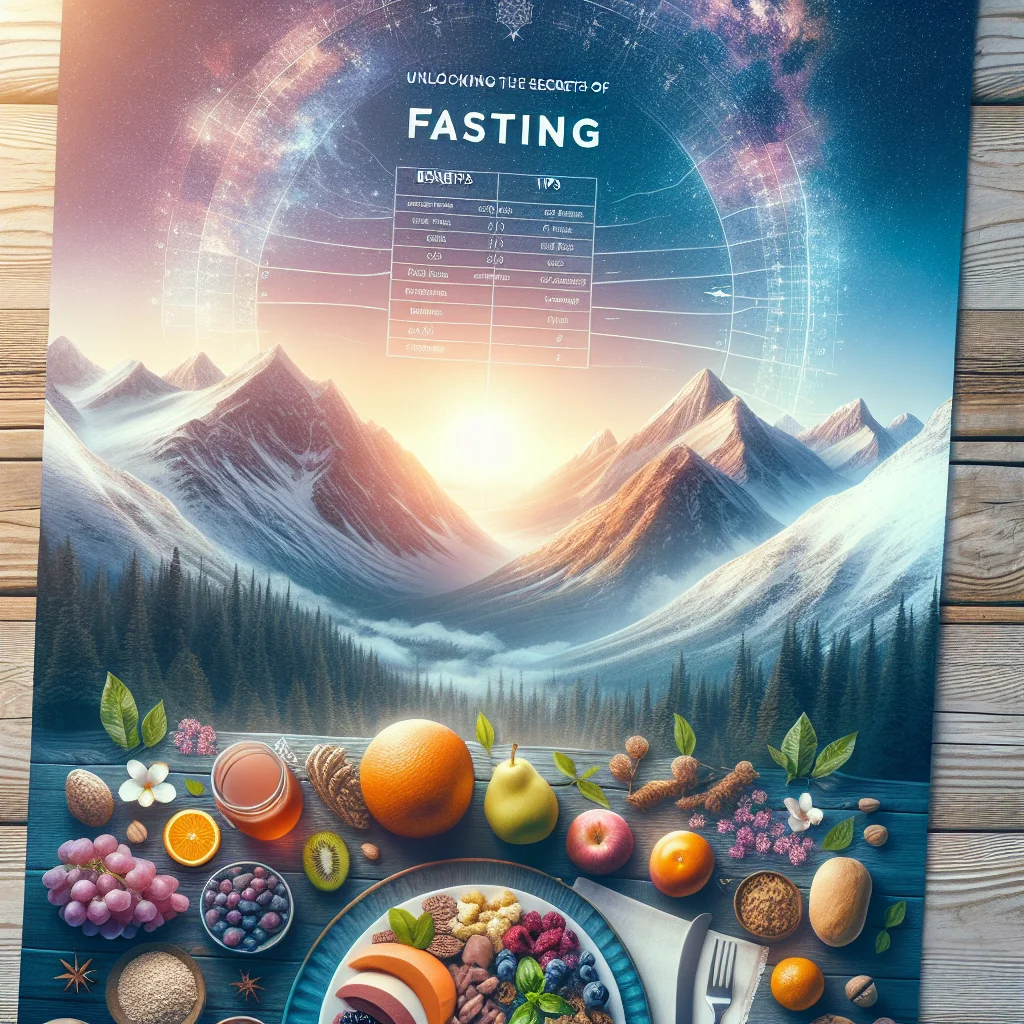Unlocking the Secrets of Fasting: Benefits and Tips for Success
March 22, 2025

Fasting has been practiced for centuries, evolving from a cultural and spiritual tradition to a prominent method for enhancing health and wellness. Today, individuals around the world are discovering the benefits of fasting, from weight loss to improved mental clarity. In this article, we will delve into the various types of fasting, their health benefits, and practical tips for anyone looking to embark on their fasting journey.
What Are the Benefits of Fasting?
Fasting has numerous health benefits that extend beyond weight loss. Research has shown that fasting can promote metabolic health, enhance brain function, and even increase longevity. When you fast, your body shifts from using glucose as its primary energy source to burning fat, which can help reduce body fat and improve insulin sensitivity. Studies suggest that intermittent fasting can also lead to better mental clarity and improve focus and concentration.
Moreover, fasting may play a role in cellular repair processes. During fasting periods, the body initiates autophagy, a process where it cleans out damaged cells. This cleansing can reduce the risk of various diseases, including cancer and Alzheimer’s. Additionally, many people report an increased sense of awareness and emotional clarity while fasting, making it a holistic approach to wellness.
What Are the Different Types of Fasting?
There are several fasting protocols, each designed to suit different lifestyles and health goals. The most common types include:
- Intermittent Fasting (IF): This method alternates between periods of eating and fasting. The 16/8 method, for instance, involves fasting for 16 hours and eating during an 8-hour window. This approach is particularly popular for weight loss and improving metabolic health.
- Prolonged Fasting: This involves fasting for more than 24 hours and is often undertaken for deeper detoxification and autophagy. It’s generally recommended to consult with a healthcare provider before trying prolonged fasting.
- Alternate-Day Fasting (ADF): This strategy alternates between fasting days and eating days. On fasting days, calorie intake is significantly reduced, while normal eating resumes the next day.
Choosing the right type of fasting depends on personal goals, lifestyle, and body response. It’s essential to listen to your body and find a method that feels right for you.
Tips for Beginners: How to Start Fasting Safely
If you’re new to fasting, it’s essential to approach it mindfully. Here are some practical tips for getting started:
- Ease Into It: Start gradually. If you’re trying intermittent fasting, begin with shorter fasting periods and gradually increase as you become more comfortable.
- Stay Hydrated: Drink plenty of water during fasting periods. Herbal teas and black coffee can also be beneficial and satisfying.
- Plan Your Meals: Nutrient-dense meals will provide the energy you need during your eating windows. Focus on whole foods rich in proteins, healthy fats, and fiber to keep you fuller for longer.
- Listen to Your Body: You might experience hunger pangs, irritability, or fatigue as your body adjusts. Pay attention to these signals, and don’t hesitate to reach out to a healthcare professional if you have concerns.
- Stay Busy: Distraction can be your ally. Engage in productive activities to keep your mind off food during fasting hours.
What Are Some Common Misconceptions About Fasting?
Fasting is surrounded by various misconceptions that can deter individuals from trying it. Here are a few myths debunked:
- Fasting Leads to Muscle Loss: Many believe fasting results in muscle loss. However, studies indicate that intermittent fasting can help preserve muscle mass when combined with exercise.
- Fasting is Unsafe: While fasting isn’t suitable for everyone, it can be safe for healthy individuals when done correctly. Pregnant women, individuals with certain medical conditions, and those with a history of eating disorders should seek medical advice.
- You Can’t Drink Water While Fasting: This is false! Staying hydrated with water or herbal teas is encouraged during fasting periods.
Interesting Facts About Fasting Around the World
Fasting is deeply rooted in many cultures and religions, often serving spiritual purposes. For instance:
- In Islam, Ramadan is a month-long fasting period where many Muslims abstain from food and drink from dawn until sunset, focusing on reflection and prayer.
- In Christianity, Lent involves fasting or giving up certain luxuries as a form of penance.
- Many Eastern philosophies, like Buddhism, promote fasting for mental clarity and spiritual awakening.
Ultimately, understanding the broad spectrum of fasting can enrich your experience and knowledge of this ancient practice. Embracing fasting can lead to significant health improvements, mental clarity, and even a sense of community as you share your journey with others. With the right approach and mindset, fasting can be a transformative aspect of your wellness routine.
Back